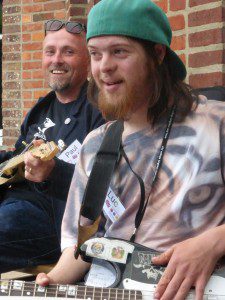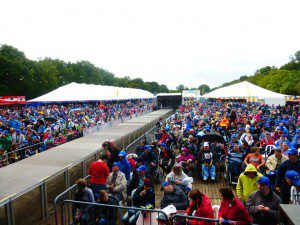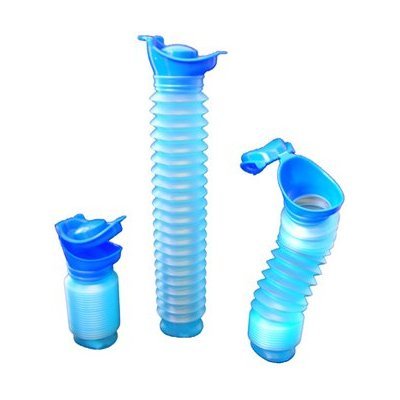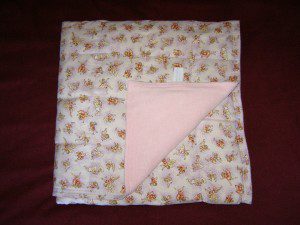Stay Up Late: Enjoy Gig Life Independently
 People with learning disabilities have the same interests, passions and hobbies as anybody else, accessing them however, is sometimes a lot harder than it should be. Music lovers may miss out on the opportunity to enjoy live music, simply due to their care plan or no one willing to go along to see their favourite band. Going out in the evening to listen to music, enjoy a show or a sports match should be accessible to everyone and the charity Stay Up Late promotes the rights of people with learning disabilities to enjoy a lifestyle of their choosing.
People with learning disabilities have the same interests, passions and hobbies as anybody else, accessing them however, is sometimes a lot harder than it should be. Music lovers may miss out on the opportunity to enjoy live music, simply due to their care plan or no one willing to go along to see their favourite band. Going out in the evening to listen to music, enjoy a show or a sports match should be accessible to everyone and the charity Stay Up Late promotes the rights of people with learning disabilities to enjoy a lifestyle of their choosing.
Stay Up Late Gig Buddies
Stay Up Late relies on volunteers who want to enjoy live music and are happy to go along with someone with learning disabilities to ensure they get to enjoy the same experiences as everybody else. Stay Up Late clients are matched with volunteer gig buddies with common interest so they can attend gigs together which might mean live music concerts but could also be football matches, church services and festivals.
Many people with learning disabilities live independently of their families but they are supported in their daily life by staff. This makes late night events difficult as many staff are tied down to rotas and therefore, if they finish their shift at 10pm, staying on at a gig until 11pm is very unlikely and the individual in question may need support in getting home and therefore would have to leave too.
Leaving events at around 9pm has become the norm for many people with learning disabilities according to Stay Up Late and this is clearly an example of the unfairness and inequality people are living with, simply due to their additional needs.
Live your Independent Life
Stay Up Late wants all its clients to know they can stay up late however they wish. Their Facebook page shows a wide range of events which have attracted people with learning disabilities across the country as well as those local to the charity’s base in Brighton.
Stay Up Late also assert that in addition to their voluntary scheme, support workers should be employed flexibly and be able to work different hours to allow late night events, going out in the evening and therefore ensuring people with learning disabilities can live the lifestyle they choose. Many support workers are happy to work different hours as long as they know in advance but red tape issues often stop companies from allowing this and this is something Stay Up Late want to change.
Share Passions and Interests
In a radio interview the man behind Stay Up Late, Paul Richards, explained the importance of the shared passions in the success of his charity. Discussing events he had attended purely because someone was needed to go, he realised just how important it was to attend events with likeminded individuals rather than just someone who’s available. Gig buddies are chosen because of their close matching interests to the clients and therefore long-term friendships are formed as well as simply someone to take along to events.
It’s also important to note that all individuals who are selected as volunteer buddies are fully checked and vetted to ensure they are safe to accompany with vulnerable adults and Stay Up Late ensure safeguarding practices are followed to the letter.
Stay Up Late and Do What You Want
Stay Up Late exists to further independence. In the interview again Paul explains how rarely you see a person with learning disabilities out at night and how Gig Buddies was setup to try and create a natural and organic process of forming friendships through shared interests and push forward the message that people with learning disabilities have every right to be out enjoying an active social life of their choosing, integrating into their chosen communities.
We think the work at Stay Up Late are doing is commendable and think their efforts should be spread nationwide to allow even more people with learning disabilities to live the lifestyle they wish, unconfined by rotas and management.
All photographs courtesy of the Stay Up Late website.
Video Transcript
The video was created using the NZ Radio interview and the mp3 can be found here http://www.radionz.co.nz/national/programmes/thiswayup/audio/20152929/stayuplate-org
A transcript of the video is available below but has also been added as captions to the you-tube video.
Simon: Stay up late is a charity in the UK that promotes the rights of people with learning disabilities to live the lifestyle of their choice. They match clients and volunteers with common interests and then they attend gigs together everything from musical concerts to sporting events and church services. Paul Richards is the man that set up Stay Up Late and Gig Buddies.
Paul: I don’t know what the situation is like in New Zealand, but the UK there is lots of people with learning disabilities and autism who don’t get huge amount of funded support. So what happens is they end up spending a lot of time at home in social isolation. Loneness leads to all sorts of things around you know poor mental and physical health and it’s bad for communities to have people who are you know, lonely. And so, gig buddies is basically trying to deal with that problem by hooking social isolated people with learning disabilities up with a volunteer who loves the same music so they can go out to main stream gigs or whatever tickles their fancy together. For some people that is to go play sports, watch sport, somebody wants to go to church; doesn’t really matter. Say what your gig is and we’ll find someone later to go. But, generally it’s around about music.
Simon: And the critical bit here is having some sort of shared interest in that type of music because I guess you’ve got so many genres of live music happening that matching that up it would be problematic. There would be nothing worse than I guess one music fan having to go and sit for 2 hours through some other type of music performance that they actually hated and wouldn’t’ come back for more.
Paul: Exactly! Last year some of our advisory group and they are made up of people with learning disabilities, they decided that they’d like to go see the dancing on ice extravaganza at the Brighton Center [00:02:01] and I said to our project manager ‘oh do I have to go? I absolutely hate that kind of thing”. Because, I know that if you love that kind of thing the energy rubs off and if you don’t you just sort of sit there zapping everyone else’s energy away from them. So I would go and I would try to be professional and I would try to be enthusiastic, but isn’t it better to go with somebody who truly shares you passion whatever that is? And your right, that’s the hook. It’s about a shared interest but also from that it’s also finding new experiences as well. So if you think about the sort of thing you sit in a pub and you are sort of chatting with a mate and you tell him to check out an artist I’ve never heard of, you know, and it’s that stuff that you go back and you buy the record and you listen to it and it expands your horizon and so that’s part of it as well, but within what people are comfortable with.
Simon: So how do you find the volunteers, the buddies that are taking people out to these gigs because as I mentioned you have to be I wouldn’t say careful, but there must be some sort of selection criteria?
Paul: Yeah absolutely. We advertise in a variety of different places so, universities, venues themselves, a lot of word of mouth, we sort of go to events you know sort of around social care and things like that and put the word out, but also people like social workers sort of spread the word as well, but everybody gets interviewed and find out more about them. Then we do, well we are required by law to do criminal background checks on everyone, and we also give them some training. During that process some people do drop out and they realize it’s not for them or they come back with a colorful police record, and if you’ve got a police record it doesn’t mean that you can’t be involved; it does depend on what it was and when it was for to be honest.
Simon: I am sure, I am sure. Now the Gig buddies is part of a broader charity that you set up called Stay Up Late which is essentially about reclaiming the night isn’t it? For I guess as you say this community of people that are a large proportion of them don’t tend to get out at night.
Paul: There is so much stuff going on you know but I sort of sit at the pub every evening, and still where we live very few people with learning disabilities out in the evening and you know the pub is where you, well I met my mates and watch music or chat the night away and those sort of things; those natural sort of things. So that’s what we through Gig Buddies are trying to create is natural friendships so they sort of go on in their informal and hopefully they last for a long time. But yeah, stay up late started because we were frustrated, I was in a band with 3 guys with learning disabilities in a punk band it’s called Heavy Load, and we were frustrated that people were leaving our gigs just as we got on stage and it was classic spinal tap because we never ever thought that was a reflection on the quality of our performances which were an acquired taste and quite chaotic and hilarious. It was because typically people do have support, have staff who are this ridged router systems that finish at 10 o’clock at night so everybody leaves at 9 so they can be home tucked up in bed with their cup of cocoa and the staff go home, and we started challenging that saying ‘look people with learning disabilities have every right to be active social lives that we all enjoy and the stuff that defines us and makes us part of a community and they are being denied it.’ So that’s why we started it and it sort of all grown from there.
Simon: So as a Gig buddy I would join the organization and I would go through the vetting process and then I fill out some form and say ‘hey look I am really into Reggae’ or I like a bit of this or that and you would then say ‘okay look we’ve got someone over here who is interested that.’ What do I then go and pick that person up and then I am responsible for them for the evening?
Paul: Yes, well what we do is we have sort of a matching process. Our project manager she’ll be thinking when she meets people, she’ll be looking at their musical interests also where they live because a lot of the areas we work outside of Bright and it is quite rural and we pull public transport link. So it’s looking at do people live in the next village or town along and do they have a car and that sort of thing. And then, then it might sometimes be around sex or sexuality, age, it’s a whole range of things go into the mix in time which work out as well as their musical tastes which is quite a complicated thing. But then we’ll always go and support the first night out so that they get to meet at first. And then we’ll go support the first night out. So it’s sort of set up in that gentle way, and then they can go on and develop their friendship, but we sort of, we guide people through that because we are fully aware that people have anxiety around going out with somebody with a learning disability and most of our volunteers are new to supporting people with learning disabilities. So you know we talk through maybe a few of the potential support issues. There might be that someone is anxious in crowds and noisy situations and things like that and what you do in situations where somebody’s experiencing anxiety and different things like that. Yeah, so we don’t just leave them to it we sort of… – and then we offer them ongoing support as well so if they are having some doubts or problems we’ll meet with them and chat through things with them.
Simon: Paul Richards is the founder of Stay Up Late and there is more information on our website right now.







